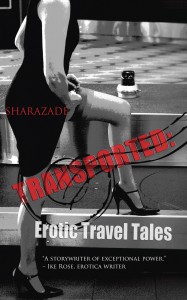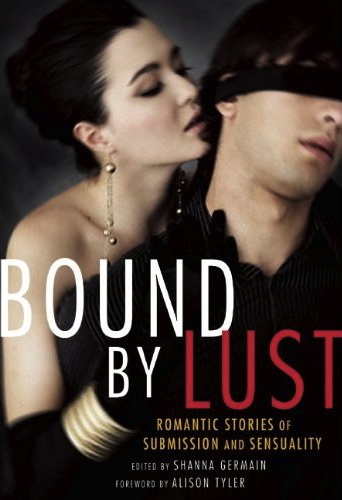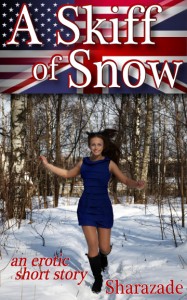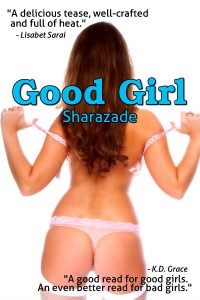It’s an interview! It’s a giveaway! It’s a … a whole new word!
Is it, in fact… a whole new genre? It might be! If you google “erotocomedic,” the first 20 hits are all to Jeremy Edwards. Sex and humor are difficult to write about (or, perhaps it’s better to say, they’re difficult to write well about), so to find both done very well, and done together, is a treat.
I previously reviewed his erotocomedic novel Rock My Socks Off here. Now I have Mr. Edwards himself here for an interview about writing and his novel. At the end of the interview, please see details for how to enter yourself into a drawing to win an autographed copy of said novel.
But first, a formal introduction, of both Jeremy and his new novel:

Jeremy Edwards is the author of the erotocomedic novel Rock My Socks Off and the erotic story collection Spark My Moment (both published by Xcite Books). His libidinous tales have been widely published online, as well as in over fifty anthologies. His work was selected for The Mammoth Book of Best New Erotica, vols. 7, 8, and 9, and he has read at New York’s In the Flesh and Philadelphia’s Erotic Literary Salon. Jeremy’s greatest goal in life is to be sexy and witty at the same moment—ideally in lighting that flatters his profile. Readers can drop in on him unannounced (and thereby catch him in his underwear) at www.jeremyedwardserotica.com.

Writer Jacob Hastings is uninspired by his latest assignment: a museum full of hideous rocking horses. But his socks are rocked by Normandie Stephens, a mischievous astronomer who can match his dry wit, quip for quip, and his sexual appetite, frolic for frolic, with energy to spare.
Thanks to Jacob’s public relations and the machinations of a feisty and frisky mentor named Kate, an impasse in Normandie’s career promises to blossom into either glory or disaster—with enigmatic photographer Susan and obtuse clubber Brandon along for the wild rocking-horse ride. Between farcical talk show appearances, sensuous threesomes, horny little quickies, sex-drenched romantic getaways, and close calls with utter embarrassment, the pace never lets up in this smart erotic romp.
And now to my questions, and of course, his answers.
Until Rock My Socks Off, you’d published exclusively erotic short stories. Why the change to a novel?
Once I’d been active for a while as a short-story author, I became aware that writing an erotic novel was something I might undertake—though I wasn’t sure this was something I actually wanted to embark on. At a certain point I judged that if I were going to do it at all, the time was right: I seemed to be at the right place in my career, the market seemed to be inviting, and my schedule at that juncture could accommodate the task. I’d developed a rough idea of the type of book I’d write if I wrote one, and there really didn’t seem any reason not to give it a try. So I jumped!
How did the idea of rocking horses come to you?
I don’t have a clear memory of the moment I got the precise brainstorm (if you will); but I do know I’d mulled over the possibilities for an institution that could be dysfunctional in that special way some small organizations become, and whose mission could involve something that was prized by certain discriminating individuals but innocuously repulsive to other discrim. individs. Somehow a user-unfriendly museum of over-the-top Victorian-era rocking horses came to mind, and here we are.
Recently I’ve read in quite a few places some debates among authors about words—specifically, whether an author should take care to only use words he thinks his readers will understand, or whether he should actually endeavor to use “big words” and throw a little education in there, or whether he should just write as he pleases, and let the chips fall where they may. Where do you stand on this issue in regards to your own writing?
You would count me with the chips. (And I do hope there’s some smoky, garlic-heavy salsa on the table.) While I wouldn’t use a word strictly with a didactic intent, I also don’t hesitate to use words that some readers might have to look up. Personally, I enjoy learning new words when I read fiction. But hopefully I draw the line at using words so arcane or archaic that their use could feel forced. (I think writers need to keep in mind that an autolectic avoidance of kenspeckle terms, with a goal of venditating one’s vocabulary and metagrobolizing the reader, can reduce one’s prose to literose remplissage.)
Well, Jeremy, that’s easy for you to say. And metagrobolizing is illegal in six states now. Incidentally, I’ve noticed that your novel diverges a bit from the classic plotline of the two main characters having a conflict with each other; rather, they get along famously, and their challenges are with external things. Coincidence, or design?
Definitely design. I didn’t want my protagonists to have to navigate a wilderness of relationship uncertainties, obstacles, or complications, or to suffer through misunderstandings, interpersonal conflict, or heart-wrenching ambivalence. I wanted them to have fun together, damn it!
Would you write another novel? If you did, would you re-use any of the same characters, or would you write new ones?
I’m not sure yet if there’s another Jeremy novel to come. But I could see going either way as far as a fresh set of characters or a new adventure for these peeps.
If you do write about a new heroine, I hope you’ll name her Literose Remplissage. She’d be French, of course, and she could be “Rose” for short. Or “Lite,” for short and thin. So, what are some things that you like to hear from readers about what you’ve written?
Some of the most heartwarming feedback has involved people telling me how likable they found my characters to be; how my work made them laugh at certain moments while getting them seriously aroused at others; that they found it joyous and uplifting; or that they’d been inspired to take something I’d written and read it aloud to a lover.
Who is your “guilty pleasure” author? Someone that popular taste says you shouldn’t like, but you actually do?
I suppose I’m my own guilty pleasure: you can all-too-often catch me rereading my old work.
How can readers get their hands on this wonderful book?
To purchase the book in paperback or e-book form, visit the publisher’s website; or see Jeremy’s site for a voluminous list of other retailers.
Isn’t there another way, though? Mr. Edwards, isn’t there some sort of a book giveaway in conjunction with this interview? I know! Maybe readers could submit an erotocomedic novel of their own by email, and then —
Why yes, Ms. Sharazade, there is a book giveaway! I invite your blog readers to leave a comment on this post, anytime from now through your bedtime on Wednesday, November 24, for a chance to win an autographed paperback copy of Rock My Socks Off (or, if preferred by the winner, an e-book copy). Simply make sure you comment under a name or nickname that will differentiate you from other commenters (i.e., you can’t all be “Anonymous.”) I will draw the winner on Nov. 25, using a random-number generator.
* * *
Well, there you have it! A chance to win a free book! And all you need to do is to leave a comment here. Well, almost all. You’ll need an identifying name (it needn’t be your legal one), and you’ll have to enter your email — this will be shared with Jeremy Edwards if you win (so he can arrange mailing of the book), and no one else. It will not be visible on this site.
Your comment can be about anything, and can be as simple as, “Yes, I’d like to enter this giveaway.” However, links to sketch online pharmaceutical companies are going to send your comment straight to my spam folder, and I might not check it before my bedtime on the 24th. I’m a busy girl! You may comment more than once, but that doesn’t enter you more than once. That would only encourage the desperate and obsessive, I’m afraid. (Needless to say, if Mr. Edwards also comments, he’s not going to put his own name into the drawing. So don’t fear him as competition!)
I suppose you’ll also have to guess my bedtime on the 24th… assuming I even go to bed then, and don’t stay up working till the 25th bears down on me, as could happen. This blog’s time stamp is from Seattle, Washington, in the U.S. Get a comment in before Seattle’s midnight, and I’ll throw your name into the metaphorical hat. And who knows? You might win something that will rock your socks off!
* * * * *









